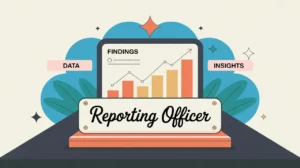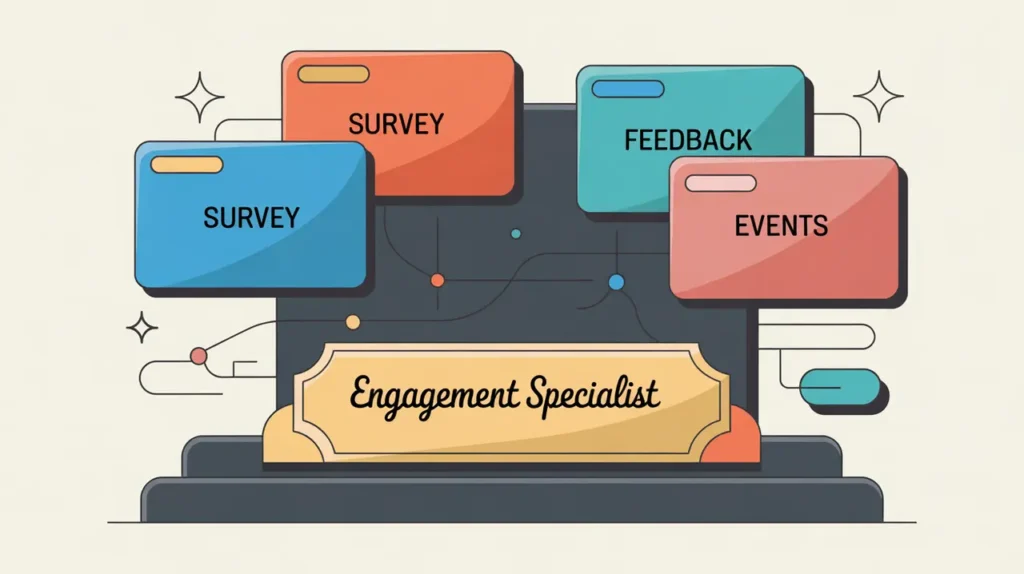What Does the HR Officer Role Involve?
An HR officer supports the management and implementation of human resources policies, procedures, and programs across the organization. This includes overseeing recruitment processes, managing employee relations, ensuring compliance with labor regulations, coordinating training and development activities, and administering compensation and benefits. The role typically sits within the HR or people operations function and works closely with managers, employees, and leadership to ensure that HR practices are aligned with organizational goals. In nonprofits and social enterprises, HR officers play a key role in balancing compliance, employee support, and operational efficiency.
At What Level does this Role Operate?
Mid Level: This role typically reports to an HR manager or director of HR. It involves a mix of hands-on HR administration, policy implementation, and strategic contribution, depending on the size and structure of the organization.
Relative Employability: HR officer roles are widely available across nonprofits, social enterprises, and private sector organizations. They are in steady demand as organizations look for professionals who can bridge administrative HR functions with strategic workforce needs.
Relative Pay Scale: HR officer roles sit within mid-level pay bands, reflecting their combination of operational responsibilities, compliance oversight, and advisory functions.
What are the Key Responsibilities and Activities?
- Manage end-to-end recruitment processes, including job postings, candidate screening, interviewing, and onboarding coordination
- Administer compensation and benefits programs in compliance with organizational policies and legal requirements
- Support employee relations by advising on HR policies, handling routine employee issues, and escalating complex matters as needed
- Coordinate and facilitate training programs, workshops, and capacity-building initiatives
- Monitor compliance with labor laws, health and safety regulations, and internal policies
- Maintain and update employee records and HR systems to ensure accuracy and confidentiality
- Contribute to the development and implementation of HR policies, procedures, and organizational initiatives
- Generate HR reports and provide data analysis to support decision making
- Support performance management processes and employee engagement activities
What Core Competencies and Qualifications are Needed?
Required Qualifications and Experience
The following reflect common qualifications and experience expected for this role, while recognizing that pathways may vary by context, organization, and region.
- Academic background in human resources, business administration, organizational development, or related fields, or equivalent professional experience
- Several years of experience in HR administration or officer-level work
- Strong knowledge of labor laws, HR policies, and employment regulations
- Proficiency with HR information systems and reporting tools
- Strong organizational, communication, and interpersonal skills
- Ability to handle confidential information with discretion
Key Competencies
- Recruitment and onboarding coordination
- Compensation and benefits administration
- Policy implementation and compliance oversight
- Employee relations and support
- Training coordination and capacity building
- HR data management and reporting
- Problem solving and advisory skills
How are AI and Automation Shaping this Role?
An AI-native HR officer will look to AI and automation to improve recruitment efficiency, enhance employee data management, and support decision making with better analytics. They can use AI tools to identify suitable candidates, manage interview scheduling, draft HR communications, and analyze workforce trends. Automation can streamline routine processes such as recordkeeping, onboarding workflows, and performance management cycles, enabling HR officers to focus on strategic workforce development and employee support.
What Career Pathways and Transferable Skills are Associated with this Role?
HR officer roles can lead to positions such as HR manager, talent acquisition lead, organizational development specialist, or director of HR. The skills developed in recruitment, policy implementation, compliance, and workforce management are highly transferable across nonprofits, social enterprises, and the private sector. This role provides a strong platform for advancing into managerial and strategic HR leadership positions.







